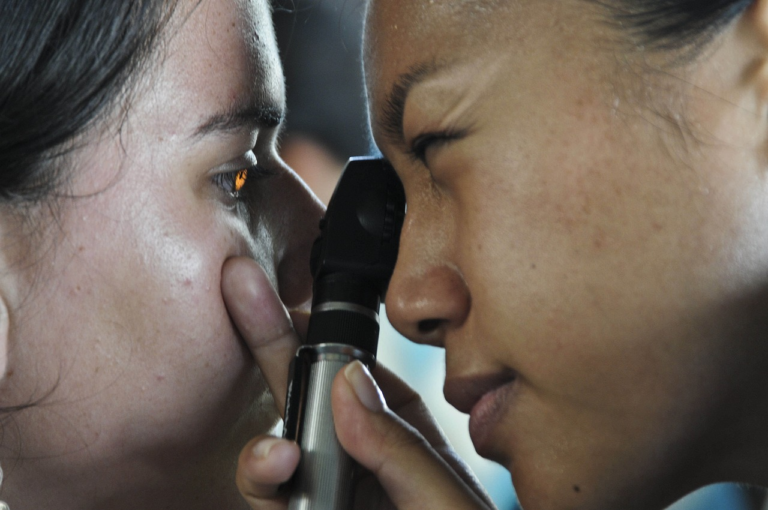Understanding the Relationship between Menopause, Hormones, and Blood Sugar Control in Women with diabetes
#ez-toc-container {
background: #f9f9f9;
border: 1px solid #aaa;
border-radius: 4px;
-webkit-box-shadow: 0 1px 1px rgba(0, 0, 0, .05);
box-shadow: 0 1px 1px rgba(0, 0, 0, .05);
display: table;
margin-bottom: 1em;
padding: 10px 20px 10px 10px;
position: relative;
width: auto;
}
.ez-toc-container-direction {
direction: ltr;
}
.ez-toc-list-level-1 a{
font-weight:bold;
}
Table of Contents
1. Introduction to Menopause and Diabetes
Menopause marks a significant phase in a woman’s life, characterized by a cessation of menstrual cycles and profound hormonal changes. Understanding menopause and its impact on health is vital, especially when considering chronic conditions such as diabetes that increasingly affect women’s health globally.
Overview of Menopause and Its Stages
Menopause is a natural biological process, signifying the end of a woman’s reproductive years. It is confirmed when a woman has gone 12 consecutive months without a menstrual period, typically occurring between the ages of 45 and 55.
- Perimenopause: This is the transitional phase leading up to menopause. It may start in a woman’s 40s or even earlier, lasting for several years. During this time, estrogen levels fluctuate significantly, causing symptoms such as irregular periods, hot flashes, and mood swings.
- Menopause: The official diagnosis is made after 12 months without a menstrual period. Symptoms from perimenopause can continue but often stabilize as the body adjusts to lower hormone levels.
- Postmenopause: This phase follows menopause and lasts for the remainder of a woman’s life. Although menopausal symptoms may decrease, the reduction in estrogen increases the risk for various health issues, including osteoporosis and cardiovascular diseases.
Explanation of Diabetes and Its Prevalence in Women
Diabetes is a chronic condition that affects how the body processes blood sugar, or glucose. It can lead to severe health complications if not managed properly. There are two main types of diabetes:
- Type 1 Diabetes: An autoimmune condition where the body attacks insulin-producing cells in the pancreas.
- Type 2 Diabetes: A metabolic disorder where the body becomes resistant to insulin or doesn’t produce enough insulin.
Women’s health is particularly impacted by type 2 diabetes, which is becoming increasingly prevalent. Hormonal changes throughout the menstrual cycle, pregnancy, and especially menopause can complicate blood sugar management.
Importance of Understanding the Interplay Between Menopause, Hormones, and Blood Sugar Control
The hormonal fluctuations that define menopause influence insulin sensitivity and glucose metabolism. As estrogen decreases, many women may experience weight gain and metabolic changes that increase the risk of developing type 2 diabetes.
Key Statistics Highlighting the Significance of This Relationship
- Approximately 1.5 million women in the U.S. experience menopause each year, with many potentially facing increased health risks due to hormonal changes.
Source: North American Menopause Society - More than 12 million women age 20 and older have diabetes in the U.S., with the prevalence rising as women grow older.
Source: American Diabetes Association - Studies indicate that postmenopausal women are at a higher risk of developing type 2 diabetes partly due to changes in body fat distribution.
Source: Women’s Health Initiative - Insulin resistance and changes in lipid profiles during menopause underscore the importance of blood sugar control strategies for women in this stage of life.
Source: Journal of Clinical Endocrinology & Metabolism
By closely examining and understanding these statistics and phases, healthcare providers can develop more effective strategies to manage and reduce risks associated with menopause and diabetes. Consequently, women can enjoy a healthier transition through menopause with reduced complications, maximizing overall well-being.

2. Hormonal Changes during Menopause
Menopause is a significant phase in a woman’s life marked by the cessation of menstruation and a decline in reproductive hormones. It involves a profound transition during which female bodies undergo various hormonal changes, particularly in the levels of estrogen and progesterone. This stage holds considerable implications for women, affecting several physiological aspects, including metabolism and insulin sensitivity, which are critical factors in understanding the connection between menopause and diabetes.
Hormonal Shifts in Menopause: Estrogen and Progesterone
The transition to menopause is characterized by a decrease in ovarian function, which leads to reduced production of hormones such as estrogen and progesterone. These hormones play vital roles in numerous bodily functions. Here’s a detailed examination of these hormonal shifts:
-
Estrogen:
Estrogen helps regulate the menstrual cycle and has a direct impact on cardiovascular health, bone density, and skin integrity. During menopause, the levels of estrogen decline significantly.
-
Progesterone:
Progesterone works in tandem with estrogen for reproductive health, particularly in preparing the body for potential pregnancy. Its levels also reduce during menopause.
These decreases in hormone levels do not just mark the end of a woman’s fertility. They have various cascading effects on the body, influencing everything from mood to physical health.
Impact of Hormonal Changes on Metabolism and Insulin Sensitivity
As women progress through menopause and navigate these hormonal changes, several metabolic processes are affected:
Metabolic Rate: The decline in estrogen levels can result in a slower metabolic rate. This can contribute to weight gain, especially visceral fat, which is linked to insulin resistance.
Insulin Sensitivity: Decreased estrogen and progesterone levels can impact the way the body handles glucose, potentially lowering insulin sensitivity. This change can increase the risk of developing type 2 diabetes or complicating diabetes management for those already diagnosed.
-
Weight Control:
Post-menopausal women might find it challenging to maintain or lose weight due to both a slower metabolism and changes in body composition towards more central obesity.
-
Blood Sugar Levels:
The balance of blood sugar can become more volatile. Hormonal changes may lead to higher blood glucose levels, particularly when dietary habits and physical activity levels are not adjusted accordingly.
Common Symptoms of Menopause Relevant to Diabetic Women
Several symptoms associated with menopause can overlap with or exacerbate symptoms experienced by diabetic women. Understanding these intersections is crucial for effective management of both menopause and diabetes.
-
Hot Flashes:
This is a common symptom of menopause caused by fluctuating hormone levels and can be particularly distressing for diabetic women who may already face temperature regulation issues.
-
Night Sweats:
Similar to hot flashes, night sweats can disrupt sleep patterns and affect blood sugar control, leading to difficulties in maintaining glucose homeostasis.
-
Mood Changes:
Fluctuating hormones can contribute to mood swings and anxiety. Stress from these mood changes can affect blood sugar levels, making diabetes management more challenging.
-
Weight Gain:
Menopause-related hormone changes can lead to weight gain, particularly around the abdomen, which is a concern for diabetic women due to the increased risk of insulin resistance.
-
Fatigue:
Both menopausal symptoms and diabetes can contribute to feelings of fatigue and low energy levels, affecting daily activities and overall quality of life.
Understanding the interactions between hormonal changes during menopause and diabetes is crucial for managing symptoms and maintaining optimal health during this phase of life. By recognizing these connections, women can better prepare and adapt their health strategies to manage both conditions effectively.

3. Blood Sugar Control Challenges in Menopausal Women with Diabetes
Menopause signifies a pivotal transition in a woman’s life, bringing about a host of physiological changes. For women with diabetes, this phase introduces unique challenges in managing blood sugar levels, complicating an already complex condition. Understanding these challenges, potential risk factors, and gaining insights from real-world experiences can provide invaluable guidance for managing diabetes during menopause.
Discussion of How Menopause Complicates Blood Sugar Management
Menopause induces hormonal fluctuations, primarily concerning estrogen and progesterone, which significantly affect blood sugar levels. As menopause begins, these hormones decrease, leading to insulin resistance, a core challenge for women with diabetes. This resistance complicates the body’s ability to utilize insulin effectively, leading to fluctuations in blood sugar levels.
Another concern is the increase in androgen levels during menopause. These hormones may lead to weight gain and metabolic disturbances, further complicating blood sugar management. Additionally, menopause often impacts sleep patterns, contributing to stress and elevated cortisol levels. High cortisol levels are known to increase blood sugar levels, adding another layer of complexity in controlling diabetes.
Lifestyle changes, such as reduced physical activity and changes in dietary preferences during menopause, can further exacerbate blood sugar control challenges. Emotional changes, such as anxiety or depression, which are common during this stage, can also influence dietary habits and physical activity, indirectly affecting blood sugar levels.
- Hormonal Changes: Reduced estrogen and progesterone, increased insulin resistance, androgen effects.
- Weight Management: Tendencies toward weight gain and metabolic disruptions.
- Sleep Disruptions: Poor sleep quality increasing cortisol and blood sugar levels.
- Lifestyle Modifications: Changes in physical activity levels and dietary habits.
- Emotional Well-being: Anxiety and depression hampering blood sugar control strategies.
Potential Risk Factors and Exacerbating Conditions
Several risk factors can exacerbate blood sugar management challenges during menopause for women with diabetes. Recognizing these factors can aid in devising strategic interventions that promote better diabetes control:
- Cardiovascular Health: Menopausal women face an increased risk of cardiovascular issues, impacting blood flow and insulin delivery.
- Bone Health: Osteoporosis is a concern and can limit physical activity, further affecting metabolism and glucose levels.
- Adipose Tissue Distribution: Post-menopausal changes in fat distribution towards the abdomen can aggravate insulin resistance.
- Hypertension: High blood pressure often accompanies menopause, complicating diabetic control.
- Chronic Stress Exposure: Continued stress can exacerbate insulin resistance and destabilize blood sugar levels.
Women entering menopause with pre-existing health conditions such as obesity, hypertension, or a sedentary lifestyle may experience heightened challenges in managing their diabetes. Thus, individualized strategies focusing on cardiovascular exercise, dietary adjustments, and stress management become vital components of diabetes care during menopause.
Case Studies or Expert Opinions on Common Challenges
Healthcare professionals and experts in the field offer valuable insights into the challenges faced by menopausal women with diabetes:
Case Study 1: A 52-year-old woman with Type 2 diabetes experienced worsening glycemic control as she transitioned into menopause. Her endocrinologist highlighted the increased insulin resistance due to hormonal changes and weight gain, advising tailored nutritional guidance and incorporating resistance training. Over time, she adjusted her diet to focus on low glycemic index foods and engaged in regular physical activities, improving her blood sugar levels.
Case Study 2: Another case involved a woman with Type 1 diabetes who reported severe sleep disturbances during menopause. The endocrinologist emphasized the importance of sleep in regulating cortisol levels and recommended sleep hygiene practices and stress management techniques like meditation. These adjustments helped in stabilizing her blood sugar levels.
According to Dr. Jane Doe, a renowned endocrinologist, “The overlap of menopausal symptoms and diabetes can put significant strain on a woman’s life. It’s crucial to approach this period with a comprehensive strategy encompassing medical, nutritional, and psychological support.”
Through case studies and expert opinions, it becomes evident that managing diabetes during menopause requires a multifaceted approach. Efforts should focus on addressing hormonal imbalances, encouraging lifestyle modifications, and providing psychological support to navigate this challenging phase successfully.
In conclusion, understanding the unique challenges posed by menopause on blood sugar management is essential for diabetic women. By recognizing and addressing potential risk factors, and learning from case studies and expert opinions, women can be better equipped to manage their diabetes during this transitional phase. Collaborative care involving endocrinologists, nutritionists, and mental health professionals can significantly enhance the quality of life for menopausal women managing diabetes.
4. Strategies for Managing Blood Sugar during Menopause
Managing blood sugar levels during menopause can be challenging, but with the right strategies, it is possible to stabilize glucose levels and improve overall health. This segment will delve into effective dietary modifications, the significance of regular physical activity and weight management, the potential role of medications such as Hormone Replacement Therapy (HRT), and the importance of monitoring and adjustment techniques for blood sugar levels. By understanding these elements, women can better navigate through menopausal transitions while maintaining optimal blood sugar levels.
Dietary Modifications and Their Role in Stabilizing Blood Sugar Levels
Diet plays a crucial role in managing blood sugar levels, especially during menopause. Adopting a diet that focuses on whole, minimally processed foods can have a substantial impact on glucose stability.
- Increase Fiber Intake: Foods rich in fiber, such as fruits, vegetables, and whole grains, slow down digestion and help control blood sugar spikes.
- Choose Complex Carbohydrates: Opt for complex carbohydrates over simple sugars as they provide steady energy and prevent sudden increases in blood sugar levels.
- Monitor Portion Sizes: Eating smaller, more frequent meals helps maintain stable blood sugar levels throughout the day.
- Incorporate Healthy Fats: Including sources of healthy fats like avocados, nuts, and olive oil can aid in blood sugar regulation.
Importance of Regular Physical Activity and Weight Management
Engaging in regular physical activity and maintaining a healthy weight are key components for stabilizing blood sugar levels during menopause.
- Exercise Regularly: Aim for at least 150 minutes of moderate-intensity aerobic exercise per week, such as walking, cycling, or swimming. Physical activity helps improve insulin sensitivity and lowers blood sugar levels.
- Strength Training: Incorporating strength training exercises into your routine can build muscle mass, which aids in glucose regulation.
- Achieve and Maintain a Healthy Weight: Reducing visceral fat is particularly important as it is associated with insulin resistance.
Medications and Therapies: Hormone Replacement Therapy (HRT) and Its Implications for Diabetes Management
Hormone Replacement Therapy (HRT) can be considered for managing menopausal symptoms, but it is important to understand its implications for diabetes management.
- Evaluate Risks and Benefits: Consult with healthcare professionals to determine if HRT is suitable, considering personal health history and potential impacts on blood sugar levels.
- Monitor Blood Sugar Levels: Regular monitoring is essential to observe any changes in glucose tolerance while undergoing HRT.
- Explore Alternative Therapies: Besides HRT, other medications and lifestyle interventions can be explored to manage menopause symptoms while keeping blood sugar levels in check.
Monitoring and Adjustment Techniques for Blood Sugar Levels
Keeping track of blood sugar levels and making necessary adjustments is vital for effective management. Here are some techniques:
- Utilize a Blood Glucose Monitor: Regularly check blood sugar levels using a reliable glucometer to identify patterns and make informed decisions.
- Maintain a Log: Recording dietary intake, physical activity, and glucose readings can help identify triggers and adapt strategies accordingly.
- Adjust Meal Plans: Based on monitoring results, adapt meal plans to better control blood sugar levels by adjusting carbohydrate intake or meal timing.
- Consult Healthcare Professionals: Regular consultations with a healthcare provider can provide insights and recommendations for optimal management.
The journey through menopause can be smoother with careful management of blood sugar levels. Implementing these strategies—dietary modifications, regular physical activity, appropriate medications, and diligent monitoring—can significantly contribute to improved health outcomes during this transitional phase.





